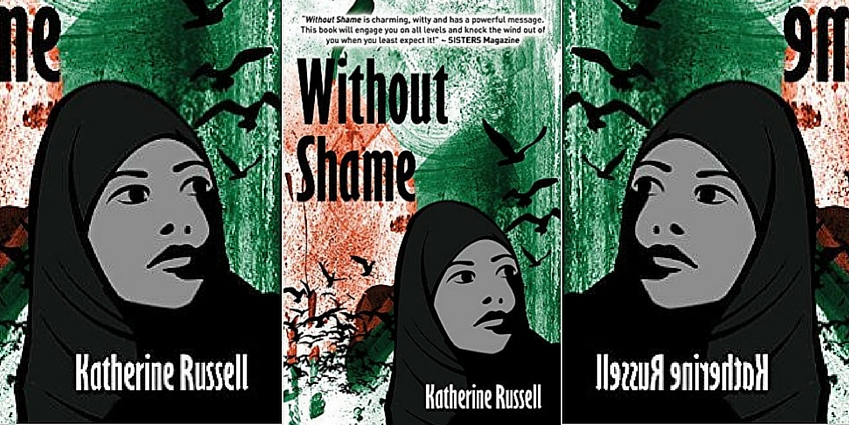
A harrowing tale of love, family honor, and tradition, “Without Shame” by Katherine Russell will leave you at the edge of your seat, wanting more and more with the turn of each page. It’s rare to find a book about East Pakistan era-Bangladesh that truly moved me both historically and culturally, Russell managed that for me.
I will want to start off by saying that the writer is a white, non-Muslim woman who is attempting to narrate the lives of Bengali Muslims in the 1960s. Some facets within the novel bothered me by the way Russell presented them. She tried to be culturally accurate in her depictions, and she even said that she “wasn’t speaking for all of Islam… only observing a part of Bangladesh.”
I applaud her extensive research into the topic of religion in the now defunct nation East Pakistan, but there were minor kinks that put me off. For the Bengali Muslim readers out there, you’ll definitely notice it. I tried to look past this fact in my review to look at “Without Shame” objectively.
The book starts off slowly by giving the backdrop of our main characters and that’s where I got hooked. Our co-protagonist, Sariyah, is introduced as a strong-willed and independent thinking Bengali woman, who pays for the consequences of her desire to be bold and carve out her own path in the chauvinist society of her small then-East Pakistani village.
The plot then briefly lulls until Sariyah comes to the life-changing decision of whether or not she will join the Bangladesh liberation movement. After that, I experienced a whirlwind of emotions reading the rest of the story. I won’t spoil anything for you guys, so be sure to read “Without Shame” for yourself to find out what happens to our beloved protagonist.
Overall, I found the story to be moving. However, tread carefully readers! The story takes place in post-colonial Bangladesh, so you’ll hear about post-colonial thinking that includes the misogyny, sexism, and social standards that would drive us millennials to rant-on-Facebook-on-social-justice-type anger. I guess it was necessary to keep with the integrity of the story. Nonetheless, I thought it was awesome to see how Sariyah overcame her struggles and grew as a character.
On another note, it’s necessary to mention the other protagonist, Rodney, an American expatriate who volunteers to teach at the school in Sariyah’s village. Their stories are intertwined in a head-on collision of emotions and social expectations. Rodney wasn’t as interesting as Sariyah’s because his character is reminiscent of those from a Hemingway novel. However, I feel like his role sort of drove the plot for Sariyah to grow and find the confidence to look within herself to make her own life choices.
For me, I loved reading about how Sariyah deals with the expectations of her family, village, and culture. And at the same time trying to reconcile those aspects with her personal ambitions and desires. Her development in the physical, mental, and emotional states was amazing to read about, and it’s one that many BGM readers can relate to.
Thus, if you’re looking for an entertaining read about love, the internal, political, religious and familial conflict of young Bengali woman, and her desire to find meaning and confidence in a world that demands her to be humble and invisible, then “Without Shame” is the book for you! I would definitely recommend this as a book club, or a chilling-at-the-beach-during-the-summer read. It’s packed with drama and tension that I know every bookworm out there craves, so it’s perfect for your lazy, stay-at-home days.
“Without Shame” is available now in a bookstore or e-bookstore near you. Check out the author’s personal website to hear more updates about the book.




